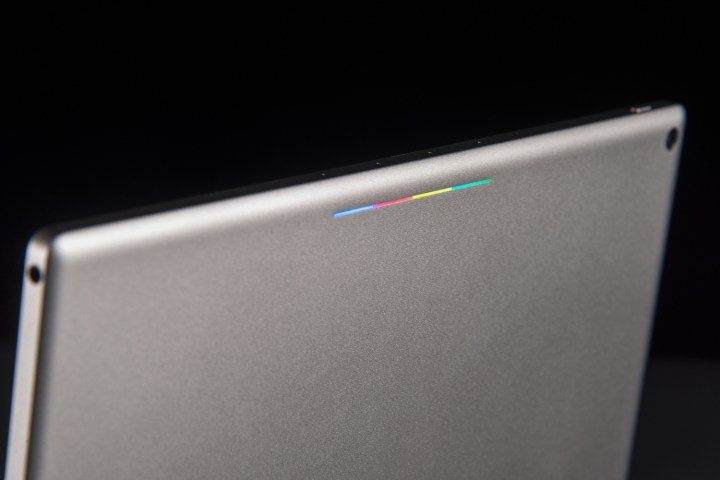
What has fueled rumors about Andromeda is the existence of a product, internally codenamed Bison, and nicknamed “Pixel 3.” Android Police cites two independent sources that say the laptop will be the result of collaborations between the Pixel, Android, and Chrome OS teams. We have reached out to Google for comment.
Bison isn’t expected to replace Chromebooks, and it’s unclear whether Chrome OS or Chromebooks are going away entirely. We can’t confirm this information, so take it all with a grain of salt.
Rumored specs
Bison will see Chrome OS merging with Android, and the codename for that OS is Andromeda. The laptop will be thinner than the MacBook Air at 10mm, and it will feature a 12.3-inch display. There will be a tablet mode, but it’s unclear whether the laptop will fold over the keyboard like the Lenovo Yoga series, or will be a separate attachment like the Microsoft Surface.
The backlit keyboard will house a “glass trackpad” that has similar force detection to the MacBook.
It will be powered by Intel’s Core M3 or i5 processor, and will feature 32 or 128GB of internal storage. It will come packed with 8 or 16GB of RAM. The choice of specifications suggests there will be at least two models.
The Bison will also have a fingerprint scanner, two USB Type-C ports, a 3.5-mm headphone jack, various sensors, support for a stylus, stereo speakers, quad microphones, and a battery that reportedly lasts 10 hours, according to Android Police.
This isn’t like the Pixel C tablet, which didn’t really have a competitive market. Google is really gunning for Microsoft and Apple here with the Bison. By launch, the search giant wants the Andromeda-powered laptop to run a host of enterprise, developer, and “stylus-driven” apps.
Rumored price and release date
Bison’s starting price is expected to be $800, which puts it in competitive range of other tablet and laptop hybrids. The Microsoft Surface Pro 4 starts at $900 with a Core M3 processor.
You’re going to have to wait a while to hold Bison in your hands, though as Android Police says, the device will launch in the third quarter of 2017, or sometime between April and June 2017.
We’re expecting to see Pixel-branded smartphones, Chromecast Ultra, Daydream VR, Google Home, and Wi-Fi routers at Google’s October 4 event. Android Police suggests we also may get a sneak peek of Andromeda, and we won’t have to wait long to find out.
Editors' Recommendations
- A new Google Pixel Tablet is coming, but it’s not what you think
- Google Pixel 9: news, rumored price, release date, and more
- Google just announced Android 15. Here’s everything that’s new
- Your Android phone is getting lots of fun new features this month
- Google and Qualcomm are changing Wear OS smartwatches forever

